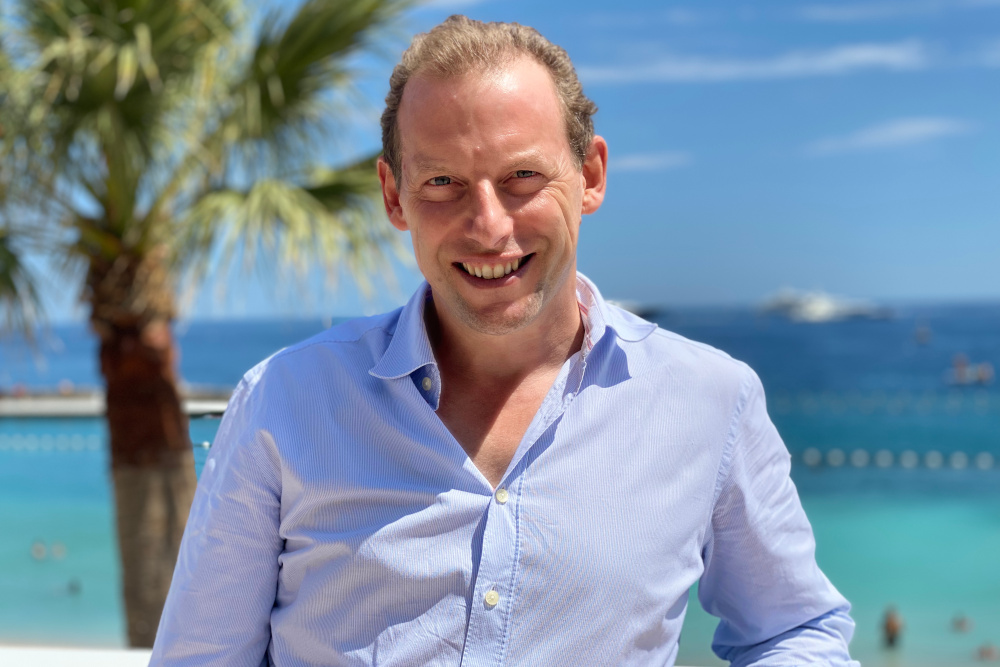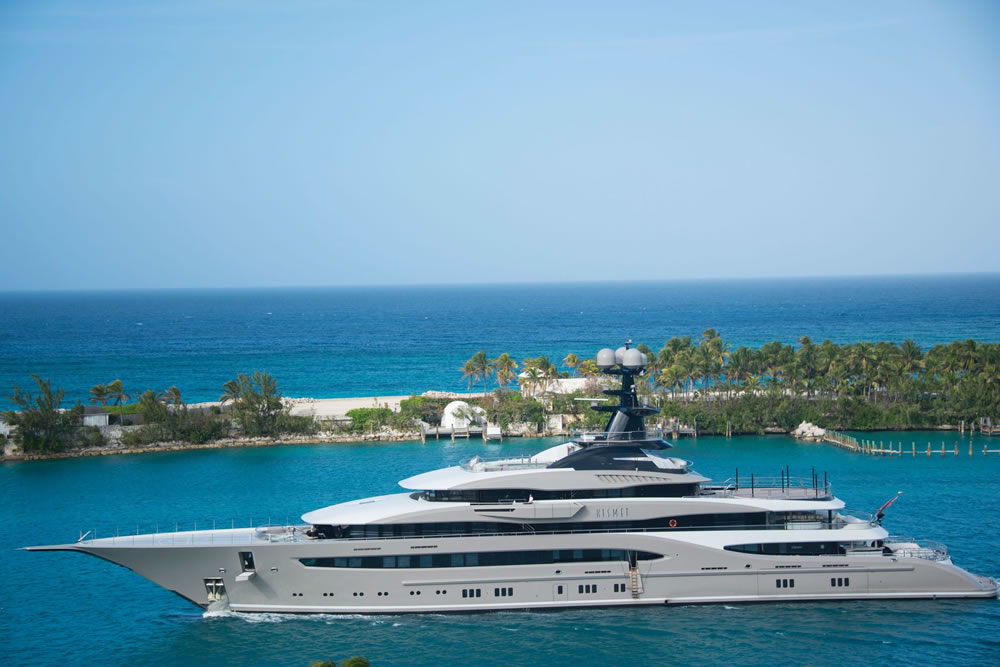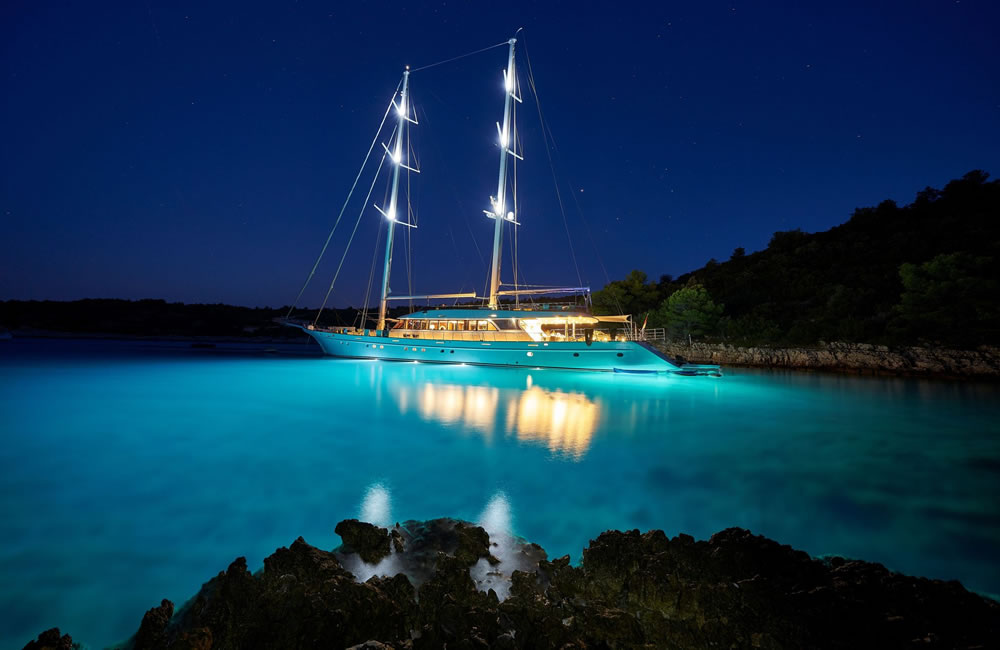Tim Morley, head of the Environmental Committee at MYBA The Worldwide Yachting Association, shares his insights on how the yachting industry must make renewed efforts to become increasingly sustainable and how people working in the industry can contribute towards this sustainable shift.
His current role at MYBA is highly significant, as the targets for CO2 reduction require urgent action; and clients are already influenced more and more by awareness of climate related greenhouse gasses (GHG).
What shifts have you seen in the themes of interest for yachting in recent years?
There are positive signs, and opportunities. There is increased interest in environmental protection of oceans. People are constantly searching for unique experiences too, wanting to explore further and reach parts of the world they haven’t been to before. I am working with a fantastic expedition leader who is involved with climate science at a high level, and together we can offer clients once in a lifetime opportunities, which take them to incredible destinations and at the same assist with serious science. Clients can choose which types of science they want to focus on, and they can get involved.
In December 2022, we have booked a fantastic charter that will do just this, with embarked scientists, the trip will take guests to visit sea beds that have been covered by ice for millions of years and find new species, the excitement this creates is spectacular.

Are hybrid yachts the future of green yachting? And what other types of yachts can we expect to see on the water in years to come?
I would say that future of power for yachting is going to involve multiple sources of energy, so in that sense it’s true that yachts will have ‘hybrid’ solutions. In other words, energy will come from more than one source. It will not be a hybrid of simple engines and batteries however, since batteries do not hold enough power.
We need new technologies to add to the hybrid mix; new technologies that can compete with the on-board energy reserve akin to many thousands of litres of diesel fuel. Cost and safety also play a big part in this. We don’t have the answers, and that is exactly why I want to devote the Environment Committee time and resources to finding people and companies who do have answers. Some of the major shipyards around the world are already investing in development of new ideas, and I want to support and help them. As brokers we should be aware of the possibilities and share the news with clients who can consider if they want to take advantage of them.
We need to be building zero carbon yachts as soon as possible. We need to be providing options to refit existing yachts to low CO2 output, with an acceptable and viable cost involved, as soon as possible.

What about solar technology? Do you anticipate this becoming the standard on the seas?
Yes, sure. As I mentioned before, I think the solutions will be hybrid, but we have to be realistic, as the energy from solar or wind is not going to get a 70m yacht very far.
There is no shortage of smaller yachts already navigating with renewable energy accounting for a large part of their energy needs. I enjoy watching the YouTube channel called Sailing Uma, that follows a couple who have been sailing for a few years already with a boat that they have managed to optimise to be almost entirely self-sufficient on renewable energy produced on board. This is great, but it doesn’t even enter the conversation when it comes to CO2 from the yachting industry, because it isn’t scalable. UMA is a 36-foot boat!
The Energy Explorer project was the foundation of the development of the EO-Dev hydrogen generator. The Energy Explorer yacht has sailed around the world, making its own green hydrogen from renewable energy as it goes. This is inspirational. Yes, there are a lot of challenges, but these pioneers need to be supported, and the MYBA Environment Committee intends to do that.
You have stated that the subject of CO2 emissions is now a hot topic. What needs to be done to accelerate the transition to very low CO2 emissions yachting as much as possible?
This is exactly the question everybody needs to be asking and I don’t have the answer; it’s a priority right now, and we urgently need to keep finding more answers as they come along. We need to ensure that there is rapid transmission of ideas and innovation, to not waste any opportunity to reduce the CO2 emissions from yachting.
People may question why the development in the reduction in car C02 emissions has been much quicker than yachts, however, the process for cars is much easier as the stored power requirement is already matched by the weight and energy density of batteries that can be carried around.
Big yachts require vastly more energy, and batteries can’t provide enough to do the job. The yacht LUMINOSITY, launched in 2020, has been argued to be the most creative and, potentially, the most eco-friendly yachts brought to the water in the last two years. It has a hybrid diesel-electric infrastructure with three Megawatts of battery power stored in 36 tonnes of batteries, but they are the first to admit its benefits don’t include the reduction of CO2 emissions by any significant amount.

What small changes can guests make onboard yachts to help become more sustainable?
I have read a nice little book called ‘How To Save The World For Free’ which gives lots of great ideas for life in general. However, yacht crews can seek out training courses and specific advice such as that provided by Water Revolution Foundation. My advice to guests would therefore be to actively enquire with the crew about their knowledge and advice regarding sustainability. I would suggest this could be a simple point to add to the Preferences given before any charter, such as “We would like our charter to run in the most sustainable way possible – please provide us with your advice to help with this”. The crew will then be motivated even more than usual in that respect.
Purchasing of products from sea-kindly sunscreens to chemical deck cleaning products could then be increasingly driven by the client’s environmental concerns.
All imagery supplied by MYBA The Worldwide Yachting Association






















